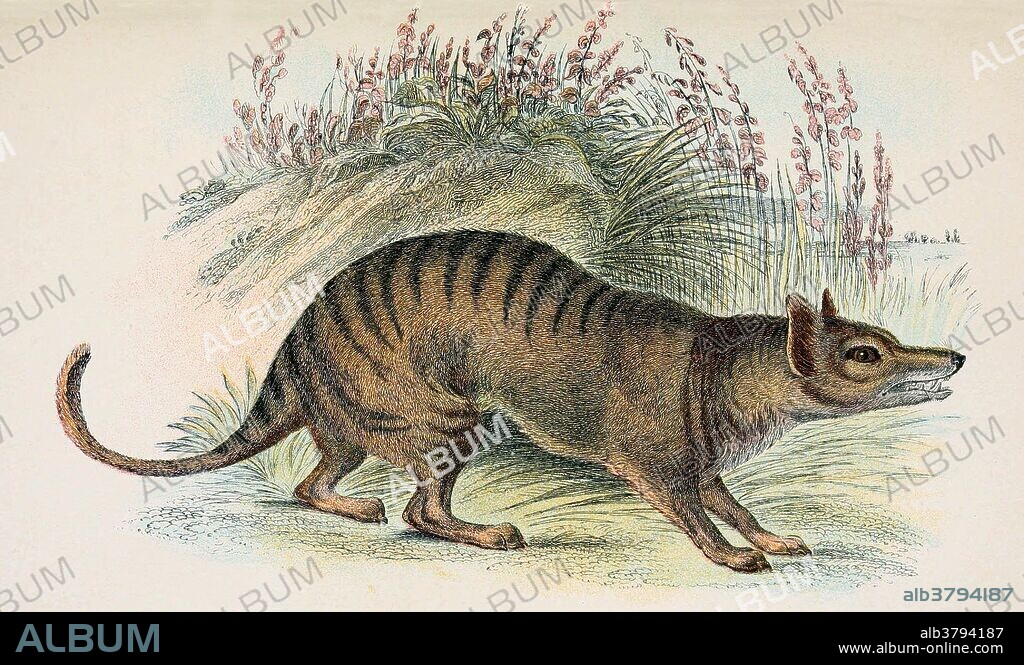alb3794187
Tasmanian Tiger, Extinct Species

|
Añadir a otro lightbox |
|
Añadir a otro lightbox |



¿Ya tienes cuenta? Iniciar sesión
¿No tienes cuenta? Regístrate
Compra esta imagen.
Selecciona el uso:

Título:
Tasmanian Tiger, Extinct Species
Descripción:
Ver traducción automática
The thylacine (Thylacinus cynocephalus) was the largest known carnivorous marsupial of modern times. It is commonly known as the Tasmanian tiger (because of its striped lower back) or the Tasmanian wolf. The thylacine had become extremely rare or extinct on the Australian mainland before British settlement of the continent, but it survived on the island of Tasmania along with several other endemic species, including the Tasmanian devil. Intensive hunting encouraged by bounties is generally blamed for its extinction, but other contributing factors may have been disease, the introduction of dogs, and human encroachment into its habitat. Despite its official classification as extinct, sightings are still reported, though none has been conclusively proven. Surviving evidence suggests that it was a relatively shy, nocturnal creature with the general appearance of a medium-to-large-size dog. Taken from "A hand-book to the marsupialia and monotremata" by Richard Lydekker, published 1896.
Crédito:
Album / Science Source / Biodiversity Heritage Library
Autorizaciones:
Tamaño imagen:
4200 x 2512 px | 30.2 MB
Tamaño impresión:
35.6 x 21.3 cm | 14.0 x 8.4 in (300 dpi)
Palabras clave:
1896 • ANIMAL • ANIMALIA • ARTE • AÑOS 1890 • CARNIVORO • CARNIVOROS • CHORDATA • CORDADOS • DASIÚRIDOS • DIBUJO • EXTINCIÓN • EXTINGUIDO • FAUNA • ILUSTRACION • ILUSTRACIONES • MAMIFERO • MAMÍFEROS • MARSUPIAL • NOCTURNO • OBRA DE ARTE • SIGLO XIX


 Pinterest
Pinterest Twitter
Twitter Facebook
Facebook Copiar enlace
Copiar enlace Email
Email
